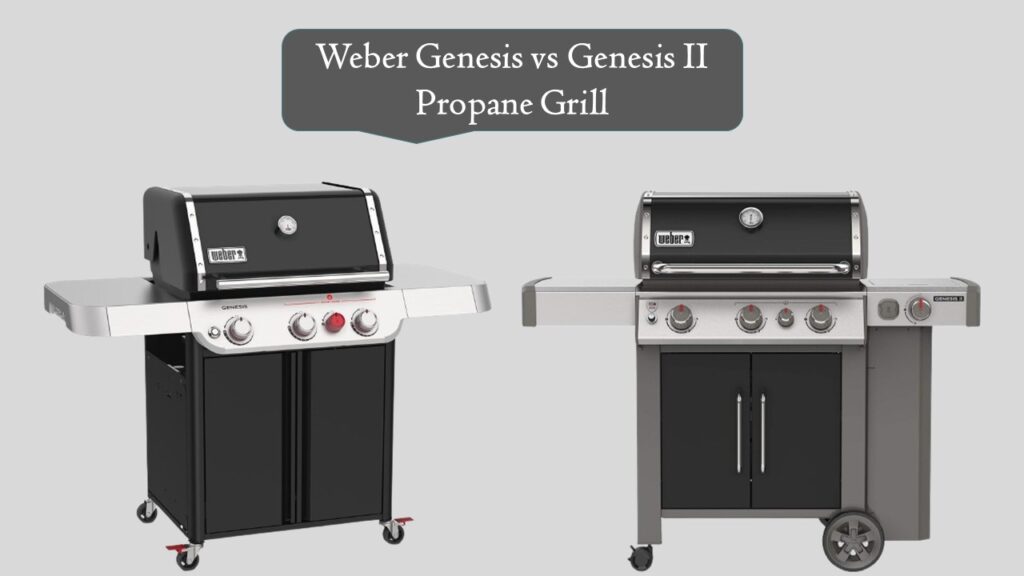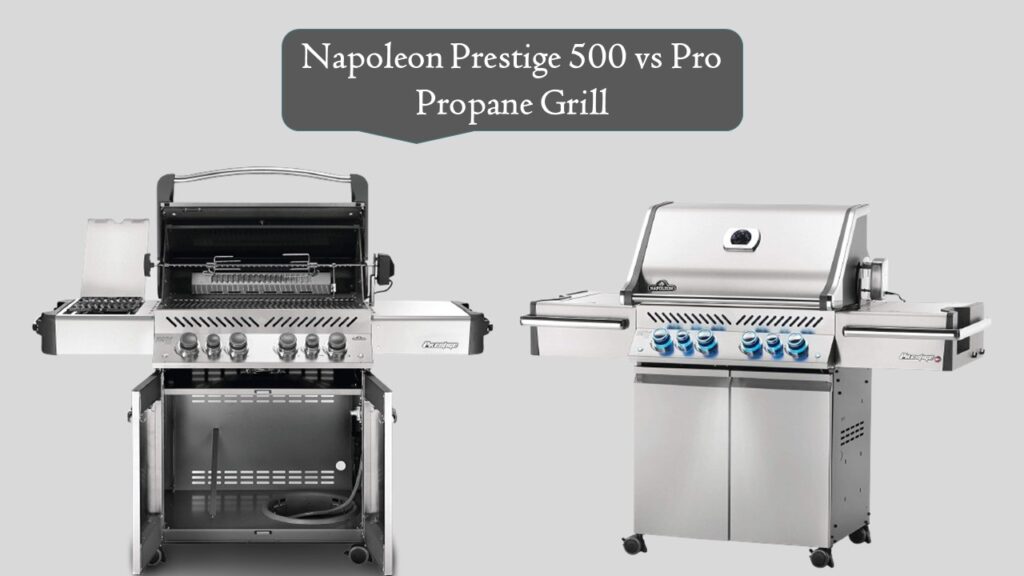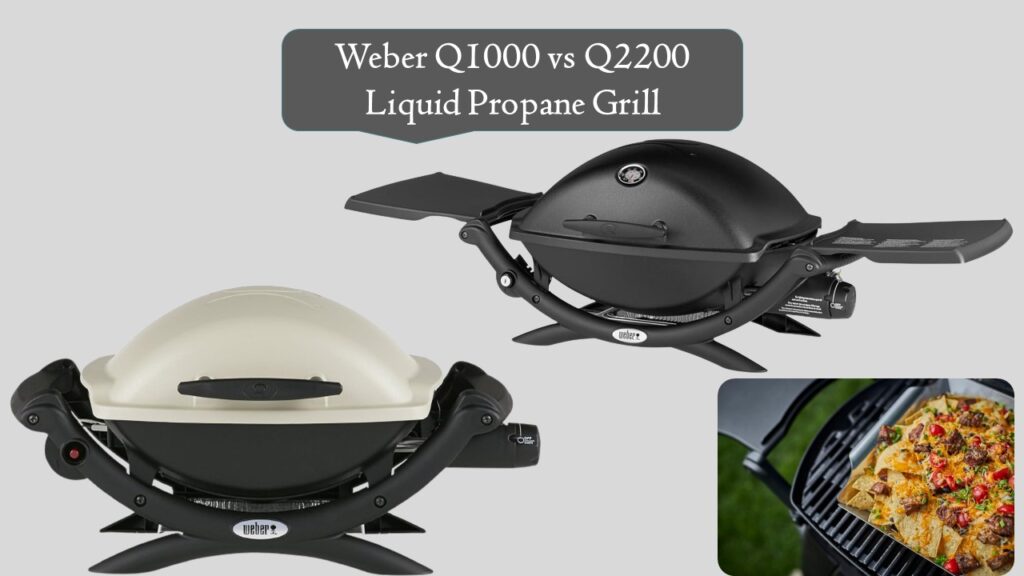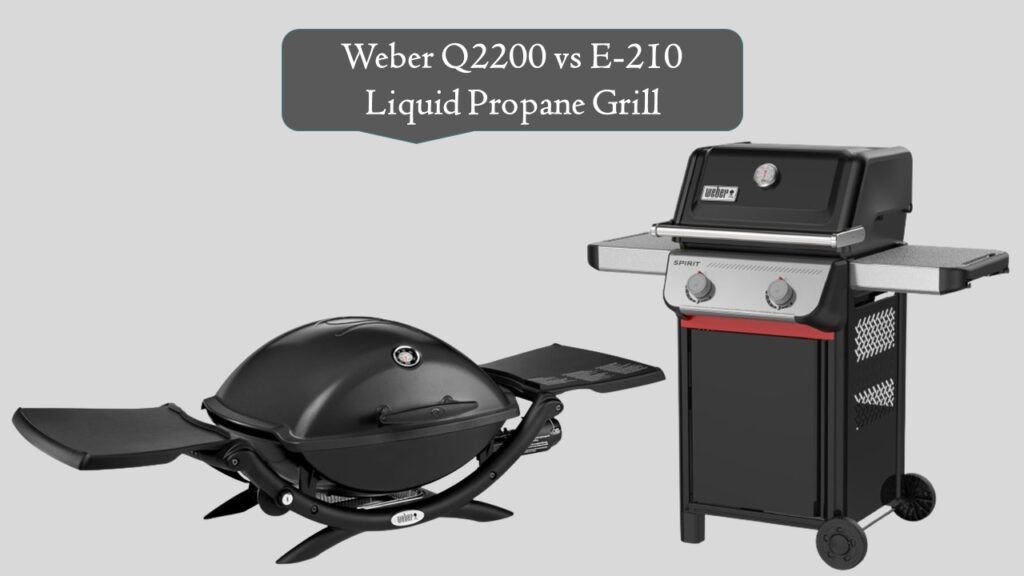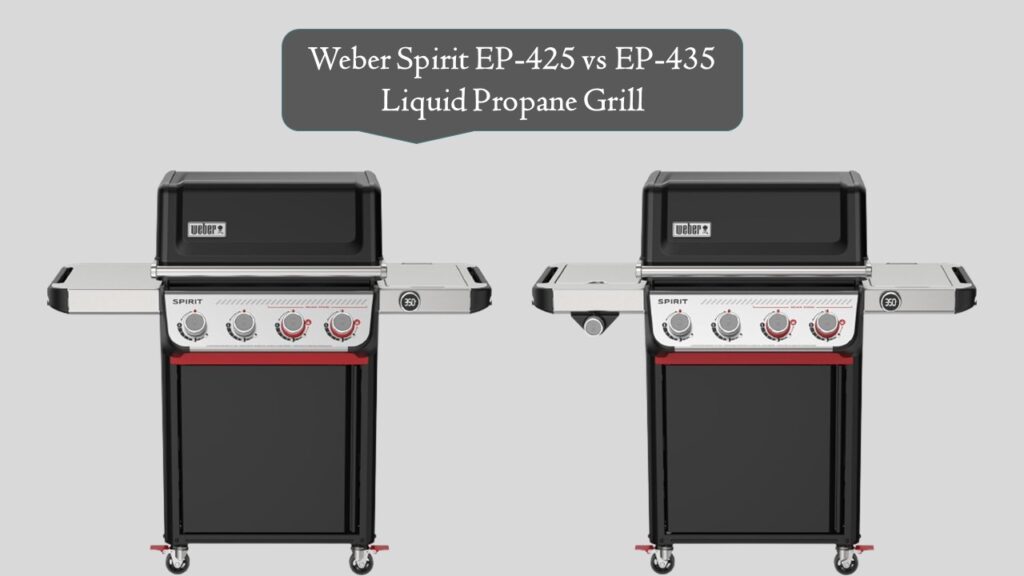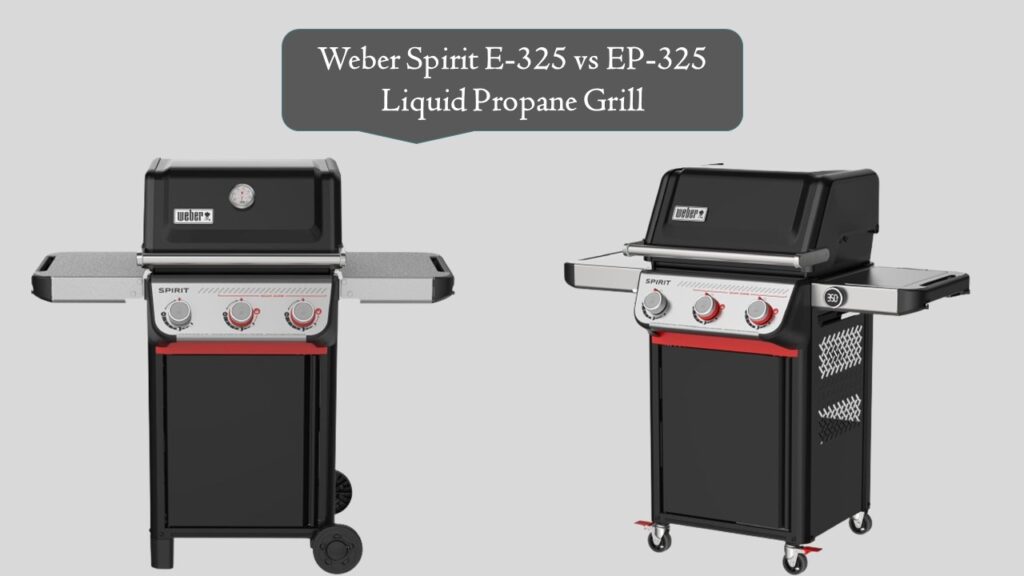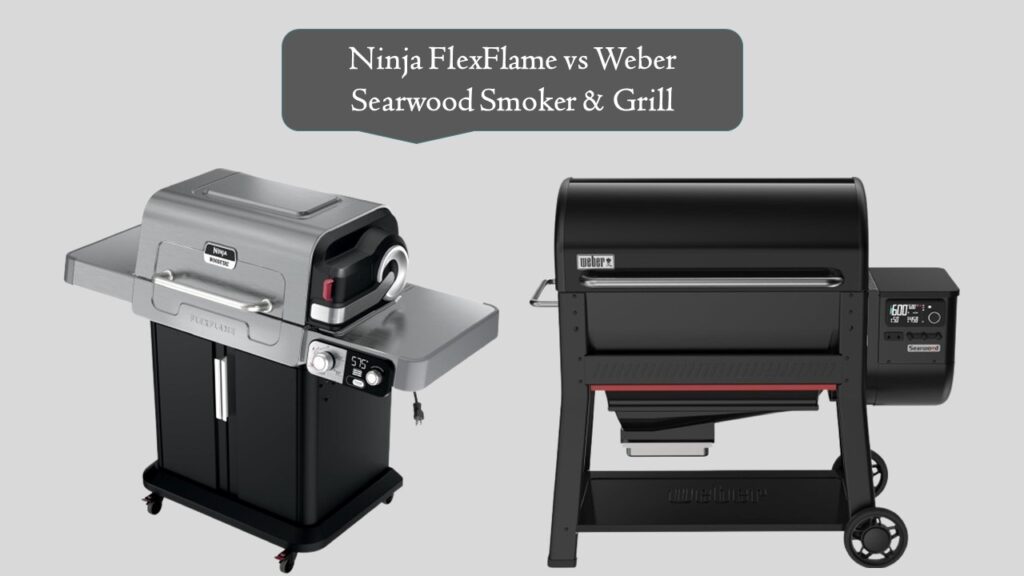A few summers ago, I found myself standing in the heat deciding between two Weber models—Genesis or Genesis II. I’d heard the buzz online, seen the price tags, and wanted something that combined durability, grilling power, and some modern perks. After testing both for several BBQs, here’s what I learned. These aren’t just specs; these are real cooking nights, friends over, burgers sizzling, steaks searing.
Key Difference Between Weber Genesis vs. Genesis II Propane Grill
The core difference between Weber Genesis (older/original models, e.g. Genesis E-325/other “Genesis” line) and Weber Genesis II is how Weber refined the grilling system, added features, and upgraded materials to meet modern expectations. Genesis II introduces improvements in burner design, structural parts, convenience features, and warranty, while the original Genesis models are solid, dependable, and often cost less.
- Weber Black Genesis Grill includes PureBlu burners with a unique, tapered design, creating a consistent flame and even...
- 10 Year Warranty, 100% Weber guarantee
Comparison Table: Weber Genesis vs. Genesis II Propane Grill
| Feature | Weber Genesis (Original) | Weber Genesis II |
| Grilling System | Linear burners, traditional ignition and flavorizer bars | GS4 High Performance System: Infinity Ignition, improved burners, enhanced Flavorizer Bars, upgraded grease management |
| Side Burner / Sear Zone | Some models (depending on trim) have sear zones; side burners less standard | Many Genesis II models include side burners or better sear stations, especially newer ones |
| Cooking Area / Grate Material | Porcelain-enameled cast-iron grates; good heat retention | Same style grates, but in some II models better materials / build tolerance and durability improvements |
| Ignition & Control Features | Traditional ignition, fewer modern extras | Infinity Ignition, more advanced control knobs, sometimes compatibility with thermometer or electronics (Weber Crafted etc.) |
| Warranty and Build Quality | Good warranty, but parts may vary in longevity | Upgraded warranties; more premium materials; more consistent quality control |
| Price / Value | Usually lower cost (especially in sales or older stock) | Higher price due to updated features, but higher resale / longer useful life in many cases |
| Check Price Today | Buy on Amazon | Buy on Amazon |
Detailed Review -From My Grill Nights
When I got both grills into my backyard, I cooked identical meals—burgers, vegetables, and seared steaks—on both. Here’s how they compared in everyday use.
Design & Build
The Genesis original (say model E-325) feels well built. Heavy lid, thick grates, sturdy flange and side tables. When I close the lid, I feel its weight; when I carry big cuts of meat, the cast iron grates hold heat well.
When I switched over to a Genesis II model (like E-335 in my test), the aesthetics felt more modern: better finishing, knobs felt smoother, the Flavorizer bars feel more refined, and small touches like improved grease trays or drainage made cleanup marginally easier. Also, I noticed the paint and lid hinges seem a little improved; less flex and less warping under heavy heat over time.
- Weber Black Genesis Grill includes PureBlu burners with a unique, tapered design, creating a consistent flame and even...
- 10 Year Warranty, 100% Weber guarantee
Heat & Cooking Performance
I lit both grills side by side on a calm evening. Both reached high temps with main burners. But the Genesis II’s burners often felt a little more responsive—less lag when increasing temp, better distribution. The original Genesis didn’t lag badly, though; in cooler weather, it took slightly longer to recover heat when I put thick steaks on.
The sear zone in the newer Genesis II (on the models that have it) gave a more pronounced char without burning. In the original, sometimes the sear area was smaller or less intense.
For large grilling sessions (multiple meats, veggies), the extra stability in heat from Genesis II makes a difference—less guesswork, fewer flare-ups.
Features & Convenience
Here’s where the Genesis II clearly raises the bar:
- Infinity Ignition or improved ignition systems—faster, more reliable.
- More robust grease management—removable trays, safer design, less dripping.
- Better side burner options in some II models for sauces, sides, or warming.
- Compatibility with Weber’s accessory systems (like Crafted) is better on II models.
The original Genesis is straightforward; you get what you need: good burners, warming rack, Flavorizer bars, side tables. But fewer bells and whistles.
- Weber Black Genesis Grill includes PureBlu burners with a unique, tapered design, creating a consistent flame and even...
- 10 Year Warranty, 100% Weber guarantee
Maintenance & Longevity
After a few uses in rain, sun, grease, I found:
- The original Genesis shows wear: the enamel may discolor; the paint outdoors fades a bit; knobs loosen over time. Parts are still available, but matching finish might differ.
- The Genesis II seems built for that wear: better tolerance for heat cycles; better materials in knobs, in the box/cart assembly; slightly better protection for side panels and joinery.
If you plan to use the grill heavily, in varied weather, the II seems more likely to maintain performance over years.
Weber Genesis (Original) Liquid Propane Grill
- Weber Black Genesis Grill includes PureBlu burners with a unique, tapered design, creating a consistent flame and even...
Pros:
- Lower cost if you find a good deal or buy slightly older stock.
- Solid core features: 3 burners, good sear zones, reliable performance.
- Known parts availability and repair legacy.
- Less complex—fewer electronics means fewer things to potentially fail.
Cons:
- Fewer modern conveniences (weaker ignition, simpler grease management).
- Materials and finishing may degrade quicker under heavy use.
- Fewer extras (side burners, compatibility with newer accessories) in base models.
Weber Genesis II Liquid Propane Grill
- 10 Year Warranty, 100% Weber guarantee
Pros:
- Upgraded ignition, burners, flavorizer bars, etc.
- Better build & materials—better for long-term durability.
- More modern features: side burner, searing station, accessory compatibility.
- Better warranty in many models, more modern design touches.
Cons:
- Higher price.
- Sometimes the improvements may be incremental—if you’re a casual user, original Genesis might deliver 90% of what you need.
- Slightly heavier and more complex to maintain (accessories, more parts to check over time).
Conclusion & My Recommendation
After grilling dozens of meals using both, here’s where I stand:
If I were outfitting a grill for occasional weekend use—maybe once or twice a month, for burgers, chicken, veggies—the original Weber Genesis probably gives you great value. You get excellent cooking, solid materials, and for your money you can get a model that will last many seasons.
But if you expect to grill regularly, host larger cookouts, or spend time maintaining your grill (cleaning, parts, using accessories), the Genesis II is worth the extra cost. The improvements in material, design thoughtfulness, and convenience add up in real cooking nights. You’ll notice the difference when recovering heat, dealing with grease, or wanting to sear nicely.
My recommendation: Go for the Genesis II (E-335 or equivalent) if your budget allows and you want a grill that will perform well for years. If you’re more budget-conscious, the original Genesis (e.g. E-325) remains a strong choice—but buy it knowing you might compromise on some modern touches and maybe do more upkeep.

